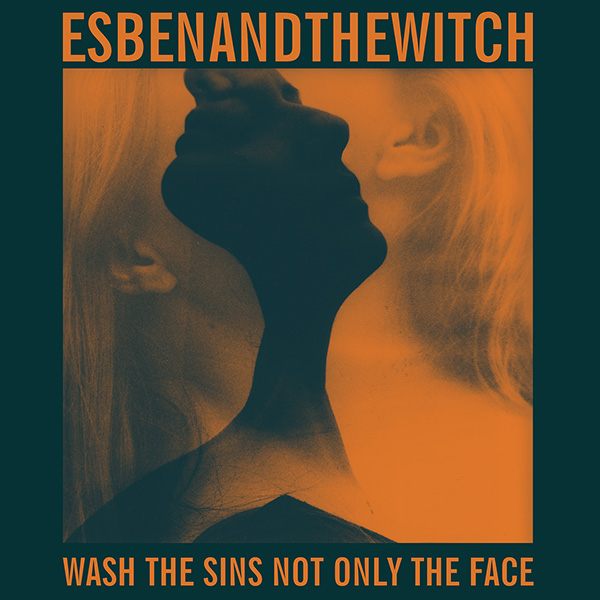Violet Cries, the title of Esben and the Witch’s debut album, is a nice summation of the sound the band unrelentingly employs throughout their music. They use a sound palette of dark and purply, nocturnal and gloomy sounding guitars, interwoven with driving drums and iced with singer Rachel Davies’ melodramatic vocals. Their follow up, Wash The Sins Not Only The Face, doesn’t really broaden this palette so much as try to use it in more expansive ways, something with which they have intermittent success.
One of the biggest successes on the album is its opening track, “Iceland Spar,” in which the band come hurtling out of the gates, drums pounding and guitars throttling, only to peel them back at a moment’s pause for Davies’ vocals to flutter in and float over the yawning chasm left behind before they come rollicking back in again. This breathless opening gives way to “Slow Wave,” which slithers forward with slick guitars, creeping drums and crawling bass, ebbing and flowing around Davies’ vocals, before swallowing them up and entwining them amidst the interwoven guitar lines. The directness of these two opening songs is continuous throughout Sins; even at the album’s sparest moments there is something maintaining the fraught atmosphere. And indeed it is the band’s work on maintaining an atmosphere throughout Sins that is the strongest asset the album has. Whether it’s the ghostly backing vocals and echoing percussion on “Shimmering,” the hissing guitars on “Despair,” the clicks and whooshes floating about “Putting Down The Prey” or one of the multitude of other little effects thrown into each song, you always feel trapped inside the frigid soundscape that Esben and the Witch have cultivated.
Yet, the album still holds the same major pitfall as their debut — that of too much similarity between tracks and not enough stand-out moments. Gothic and dark rock music of this ilk is strongest at its most cathartic moments, but there aren’t many to be found on Sins, even though the band’s whole outset is to create something grandiose and brooding. The problem is possibly because the band have the drama dialed all the way up at all times, not leaving much space to grow into when they want to make a point. Davies’ lyrics are almost exclusively made up of strings of highly expressive images and emotions, but to a point where it’s hard to even sympathise with what she’s talking about, even though the music, the words used and the way they’re delivered all suggest that every single sentence she emits is of life-or-death importance.
The album’s final track, “Smashed To Pieces in the Still of the Night,” shows what Esben and the Witch can accomplish when they employ a little more poise and patience in their build up. The seven minute track masterfully heightens the tension in a slow and controlled manner, only allowing it to come crashing down like the imagery of its title in the final minute.
It’s tracks like those that bookend Wash The Sins Not Only The Face that truly show what Esben and the Witch are capable of at their best; when they surprise the listener with sudden turns or tease the listener by having a little more tact. They haven’t quite found it yet, but Esben and the Witch have the potential for an arresting and momentous album in them. My advice to them for their next release would be work on the delivery, not just the drama.

